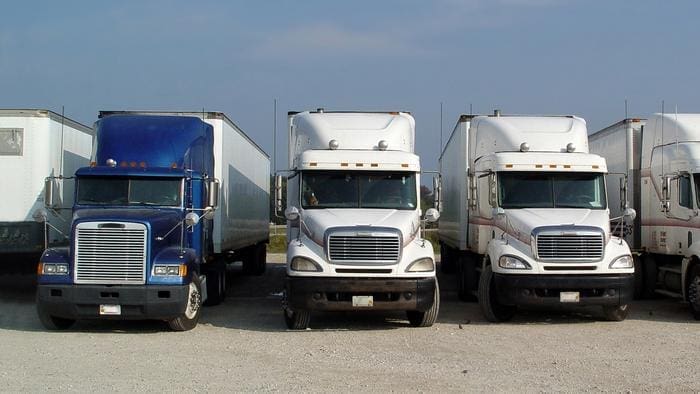California must implement early retirement for existing heavy-duty vehicles as well as introducing zero-emissions vehicles (ZEVs) to protect Black, Latino and vulnerable communities and hit net zero greenhouse gas (GHG) emissions targets by 2045. This is the outcome of a new study published in Environmental Research: Infrastructure and Sustainability by researchers from Stanford University and Arizona State University.
Stringent policies for mandating both ZEVs and early vehicle retirement could reduce cumulative emissions by two-thirds (64%) and reduce half of pollution-related mortality, particularly among disadvantaged communities.
California is the world’s 5th largest economy, producing 0.75% of the world’s GHG emissions, with transport as its single largest emitter. Heavy-duty vehicles alone cause 8% of the state’s total emissions – 32 million tonnes of CO2 annually, roughly equivalent to New Zealand’s total annual emissions.
The study models the effects of two proposed policies to achieve zero emissions in heavy-duty vehicles: requiring the sale of only ZEVs by a set date and the early retirement of current combustion engine vehicles. It examines the simultaneous impact of these two policies for different implementation dates between 2025 and 2040. The model focuses on the turnover of vehicles, using data from the CARB’s EMFAC online Emissions and Fleet Database and includes the emissions from the increased production of electricity that electrification would require.
The model also considers the health impact of reduced airborne particulates resulting from the removal of combustion engine vehicles. It predicts that there would be 8000 excess deaths between 2019 and 2045 from particulates under a ‘business as usual’ scenario.
“While ZEV sales mandates are effective, it is clear from our analysis that they will not be sufficient for reaching zero emissions on the desired timescales. Accelerated retirement programs will be critical for California to reach emissions targets by 2045.” says Eleanor Hennessy, lead author of the study.
While focused on California, the study’s insights are applicable globally. Numerous states such as New York, Washington, and Louisiana have similar carbon neutrality goals, as do countries such as those in the European Union. The research findings are relevant to any government aiming to decarbonise their vehicle fleet.
More information: Eleanor M. Hennessy, Madalsa Singh, Sarah Saltzer and Inês M. L. Azevedo, ‘Pathways to zero emissions in California’s heavy-duty transportation sector’, Environmental Research Infrastructure and Sustainability (4 035001; 2024); DOI: 10.1088/2634-4505/ad54ed. Featured image: Heavy duty transport vehicles Credit: IOP Publishing | CC BY




